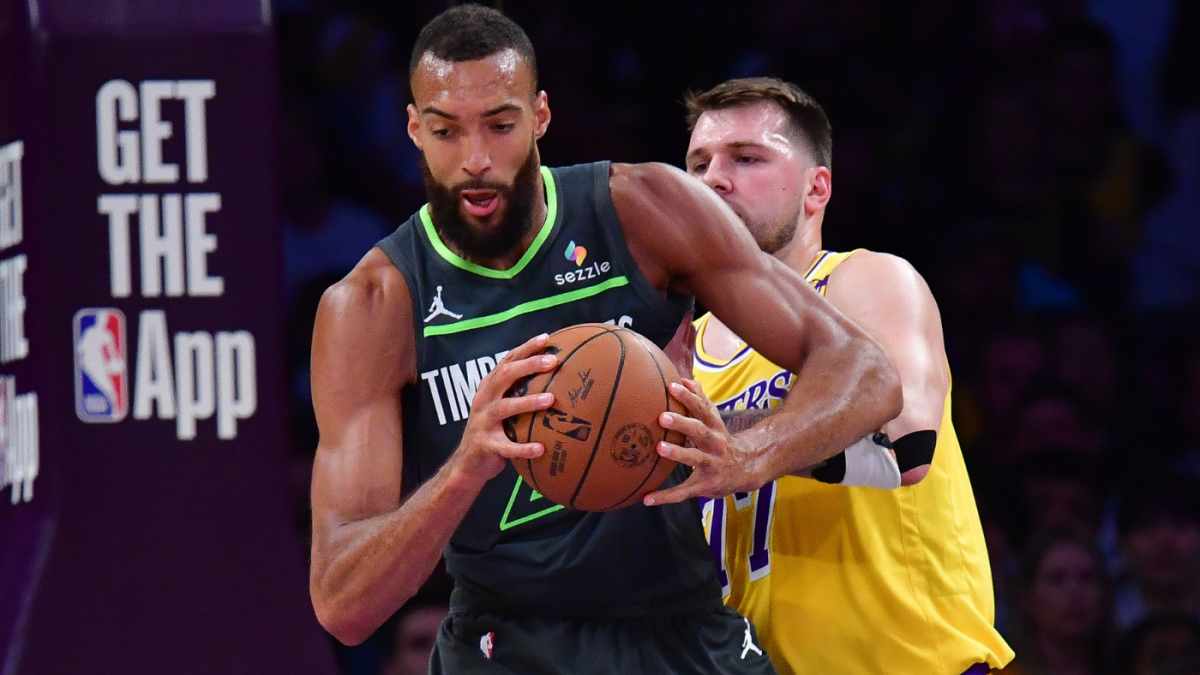The Unlikely Triumph
In the rollercoaster world of NBA playoffs, few narratives are as compelling as the underdog’s victory against all odds. The Minnesota Timberwolves’ clash with the Los Angeles Lakers was one such tale, where a historically bad shooting night was overshadowed by Rudy Gobert’s monumental performance. This analysis explores the game’s intricacies, Gobert’s impact, and the broader implications for both teams.
A Game of Paradoxes
The game was a study in contrasts. The Timberwolves’ shooting was abysmal, yet they secured a historic victory. This paradox was largely due to Rudy Gobert’s exceptional performance, which included a career-high 27 points and 24 rebounds. Gobert’s contribution was not merely statistical; it was about his presence, his control of the paint, and his relentless effort on both ends of the floor.
The Timberwolves’ Shooting Woes
The Timberwolves experienced one of the worst shooting nights in NBA playoff history. They missed 18 consecutive three-point attempts at one point, a statistic that highlights the sheer difficulty they faced. Despite this, the team stayed competitive, largely due to their dominance on the boards. The Timberwolves secured 18 offensive rebounds, with Gobert contributing nine of those. This tenacity in rebounding was crucial in keeping the game close and providing second-chance opportunities that the Lakers struggled to contain.
Gobert’s Masterclass
Rudy Gobert’s performance was a masterclass in defensive anchoring and offensive rebounding. His 27 points and 24 rebounds were not just statistical milestones but also indicative of his leadership and resilience. Gobert’s ability to control the paint and disrupt the Lakers’ offensive flow was a significant factor in the Timberwolves’ victory. His presence forced the Lakers to adjust their strategies, often leading to hurried shots and turnovers.
Defensive Prowess
Gobert’s defensive prowess was on full display. He altered shots, blocked attempts, and forced the Lakers into uncomfortable positions. His defensive rebounds were equally important, preventing the Lakers from capitalizing on missed shots. Gobert’s defensive impact was so profound that it neutralized the Lakers’ offensive threats, making it difficult for them to find rhythm.
Offensive Contributions
Gobert’s offensive contributions were equally impressive. His ability to score in the paint and draw fouls was crucial in putting pressure on the Lakers’ defense. His 27 points were a testament to his versatility and his ability to adapt to different situations. Gobert’s offensive rebounding was also a significant factor, as it provided the Timberwolves with second-chance opportunities that they capitalized on.
The Lakers’ Struggles
The Lakers, on the other hand, faced a night they would rather forget. Their small-ball lineup, which had been effective in previous games, was no match for Gobert’s dominance. The Lakers’ inability to adapt to Gobert’s defensive presence and the Timberwolves’ relentless rebounding was a significant factor in their loss.
Offensive Inefficiencies
The Lakers’ offensive inefficiencies were glaring. They struggled to find open shots, often settling for contested attempts. Their three-point shooting, a key component of their offensive strategy, was particularly poor. The Lakers’ inability to convert from beyond the arc was a significant factor in their loss, as it limited their scoring options and made it easier for the Timberwolves to defend.
Defensive Lapses
The Lakers’ defense also struggled against Gobert’s dominance. They were unable to contain him in the paint, allowing him to score at will. Their inability to rebound effectively also played a significant role in their loss. The Lakers’ defensive lapses were a significant factor in the Timberwolves’ victory, as it allowed them to control the game’s tempo and flow.
The Broader Implications
The Timberwolves’ victory has broader implications for both teams. For the Timberwolves, it serves as a testament to their resilience and the value of having a defensive anchor like Gobert. The win also highlights the importance of rebounding and second-chance opportunities in close games. For the Lakers, the loss is a wake-up call, emphasizing the need for adaptability and the importance of controlling the paint.
Timberwolves’ Resilience
The Timberwolves’ ability to win despite their shooting struggles is a testament to their resilience and teamwork. The win underscores the importance of having a balanced team, where each player contributes in their unique way. Gobert’s performance was a reminder of the value of a dominant big man, capable of controlling the paint and altering the course of a game.
Lakers’ Adaptability
For the Lakers, the loss is a learning experience. It highlights the need for adaptability and the importance of having a plan B when facing a dominant defensive player like Gobert. The Lakers’ small-ball lineup, while effective in other games, was no match for Gobert’s presence. The loss serves as a reminder that in the NBA, adaptability is key to success.
A Night to Remember
In conclusion, Rudy Gobert’s performance on that historic night was a testament to his skill, leadership, and resilience. His ability to control the paint and disrupt the Lakers’ offensive flow was a significant factor in the Timberwolves’ victory. The game serves as a reminder of the unpredictability of basketball and the importance of resilience and adaptability. For the Timberwolves, it was a night of triumph and redemption. For the Lakers, it was a lesson in adaptability and the need for a plan B. Regardless of the outcome, it was a night that will be remembered for years to come.












